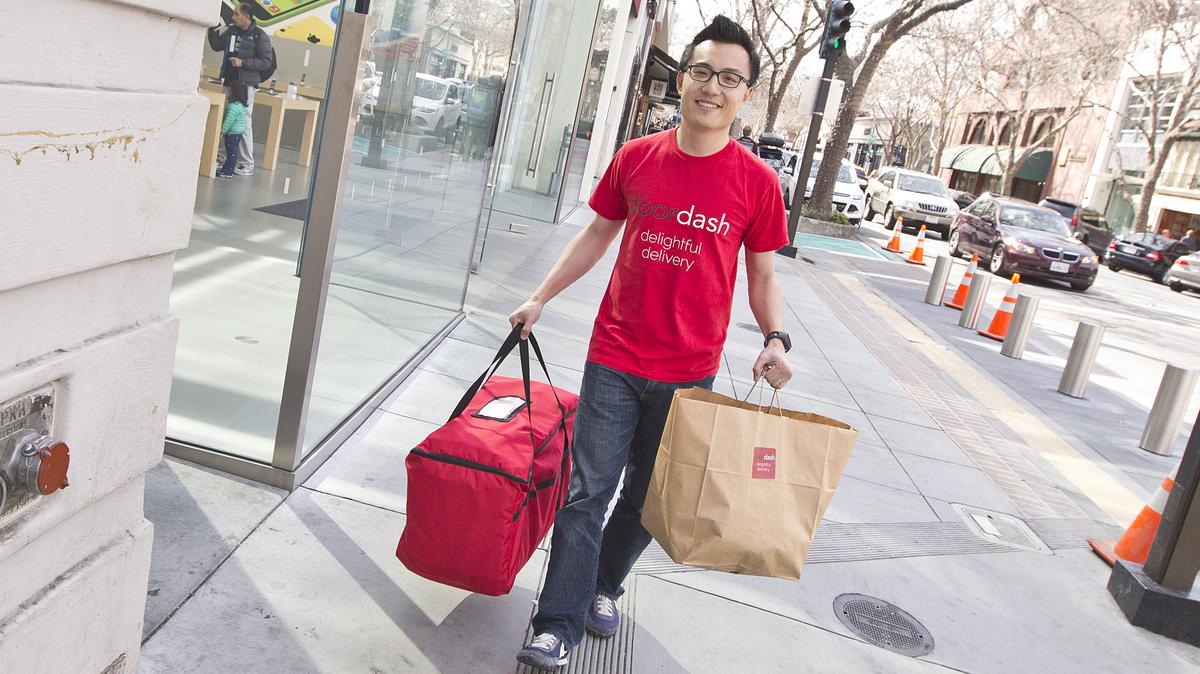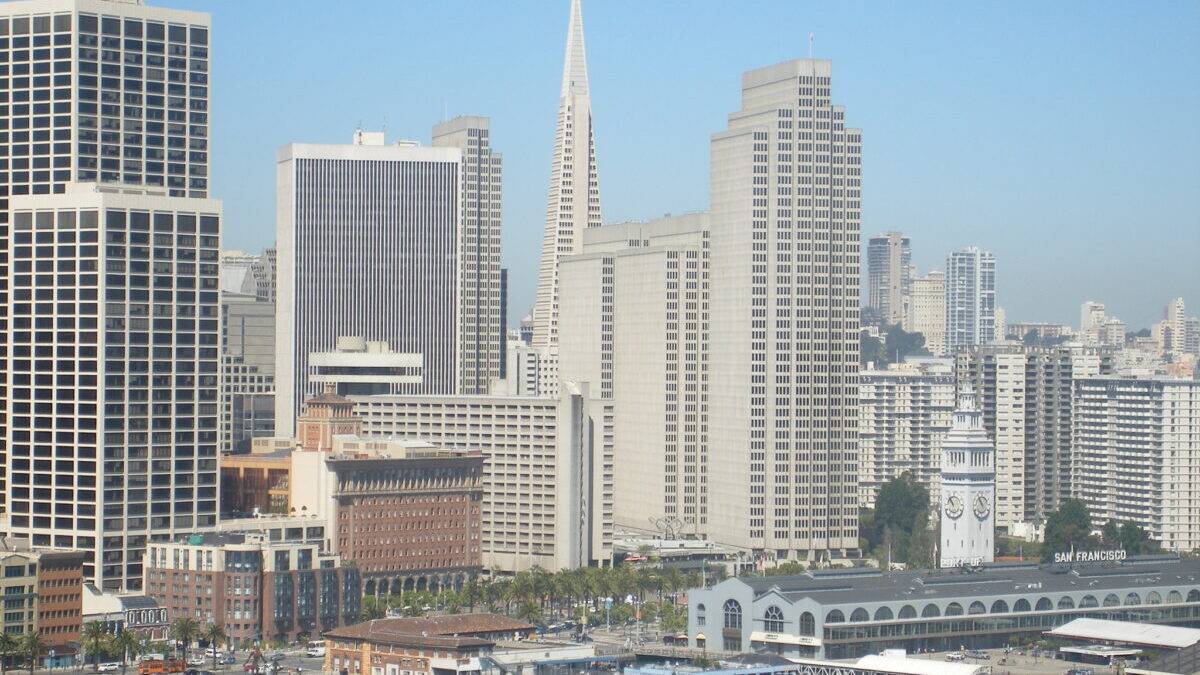
Axios compiled and published a substantial list of examples of corporate activism in the age of Trump. While it seems at first to be merely one manifestation of the new activism sweeping the Left, this corporate wokeness is actually disguising a far more troubling trend.
Having failed to win elections based on their ideas, pro-business leftists, the sort who are now often called neoliberals, are determined to foist their ideas upon an unwilling populace by any means necessary. When they fall short in the ballot box, that means using the power of their personal and corporate wealth to control the nation and undermine the rights of a free people.
A New Kind of ‘Corporate Responsibility’
At the height of its popularity in the Clinton era, “corporate social responsibility” mostly meant businesses donating to charities and adopting policies to prevent discrimination in their workplaces. It was good corporate citizenship and good public relations. The idea was emblematic of a Clinton administration that fused center-leftist social policies with a renewed embrace of capitalism. The two previously disparate ideas were held together by the force of President Bill Clinton’s personality, as he was able to convince lefty activists and moderate businesspeople that he cared about both of their interests simultaneously.
Clintonism should not be mistaken for an acceptance of the inherent virtue of free markets. Free market fundamentalism remained, then as now, a minority belief on the Right and Left. Rather, Clintonism gave a grudging acceptance to the efficiency gained by markets and, more importantly, the money to be made by them. Casting off the quasi-socialism of his generation’s hippie contingent, Clinton saw the profits of capitalism as a source of tax revenue, which could then be used to further causes his administration believed would benefit America and the world.
This newfound respect for markets was explicitly results-driven. Clintonistas were perfectly happy for capitalists to make money as long as those profits served the ends of center-left politics. Whether through tax collection or political donation, the wealth of Wall Street and Hollywood could be put to work in perpetuating left-leaning government, as well as electing the Clintons and their friends. Adherents were able to profess lefty social justice values while not actually changing anything about their capitalist lifestyles. It was a popular theory, and it led Clinton to win the White House twice.
From Clintonism to Neoliberalism
Twenty-five years on, the cause has become a racket. Clintonism suffered immediately from the absence of Bill, who was term-limited and forced to retire in 2001. A good test of whether something is a political movement or a cult of personality is how it fares when the leader moves on. Clintonism in the hands of Al Gore, John Kerry, and Hillary Clinton did not strike a chord with voters the way it did when Bill preached it from the bully pulpit.
The end of the dotcom boom and easy surpluses exposed the shallowness of Democrats’ support for markets. The Occupy Wall Street and Black Lives Matter movements led to a rise in the cult of intersectionality and a shockingly credulous belief in socialism among children too young to remember the Cold War. This shifted the social goals among Democratic voters from center-left to far-left, and made them less compatible with the rich Manhattanites who once financed Clintonism. Only by placing several fingers upon the scale was the party establishment even able to keep the 2016 presidential nomination out of the hands of an avowed socialist.
What remains of Clintonism without the Clintons is neoliberalism (at least in the American context; the word has other connotations around the world). Like modern (as opposed to classical) liberalism, the title is a misnomer: it has little to do with liberty. Only in comparison to socialism can neoliberalism be said to encompass liberty, and even then it is a liberty that is limited in the social sphere to sexual and pharmacological latitude, and in the economic sphere to the freedom to make money in acceptable industries, within limits, subject to fairly high taxes. It is a creed that was never accepted on the right and that is now increasingly squeezed out of power by intersectionalists and resurgent socialists on the Left.
They’re Making Headway in Boardrooms
For an aging movement with more money than voters, winning elections looks to be an increasingly unlikely way to achieve their policy aims. How then to ensure America’s continuing acceptance of the ideals of rump-Clintonism when voters Left and Right are rejecting it? That’s where the money comes in. Neoliberalism is unpopular with voters, but in the banks and think tanks of New York and San Francisco, it’s going strong. In the movie studios of Los Angeles, neoliberals are as numerous as Scientologists.
VandeHei and Allen’s article shows how neoliberals are using corporate power as the continuation of politics by other means. Once the comfortable preserve of clubbable Republicans, corporate boardrooms are now peopled by a self-selecting group that, while increasingly racially and sexually diverse, is ever more in lockstep with the latest manifestation of social justice. While they are not gaining adherents in the voting booth, they are not shy about throwing their weight (and the weight of their oblivious stockholders) around.
We saw this tendency made manifest in the fight over state-level Religious Freedom Restoration Acts (RFRAs). These laws, which copy a federal law passed nearly unanimously in 1993, sought to ensure that governments shall not substantially burden a person’s exercise of religion — even if the burden results from a rule of general applicability — unless the law in question is the least restrictive means of furthering a compelling government interest. That benign protection of religious people’s liberty became the subject of revilement on the Left when it got tangled up in the rights of vendors to refuse to serve gay weddings.
Reaction on the Left was swift, but different from previous incarnations of social pressure. Political partisans had long boycotted products and places for political reasons, but this time activists began to demand that corporations take their side and refuse to do business with entire swathes of the nation were jurisdictions enforced laws not to the liking of the far Left. Demanding action was, itself, nothing new; what changed is that corporations accepted the challenge, choosing one group of customers over another instead of marketing an apolitical product equally to everyone.
Civil Rights Determined By Big Banks?
The National Rifle Association is the latest target of convenience. After the massacre in Parkland, Florida, the social justice spirit shifted quickly from ending school shootings to boycotting the NRA. That, itself, is unremarkable. People on the Left have been informally boycotting the NRA for years. As the Democratic Party becomes increasingly led by an urban gentry with little or no familiarity with firearms, attacks on guns and the people who own them have become a natural part of the left-wing playbook.
Again, the shift has been not in personal action but in mobilizing the power of big businesses, whether because they’re owned by lefties or the owners are merely afraid to cross them publicly. Like AAA and AARP members, NRA cardholders are often offered discounts from various businesses. What was once a harmless way to attract members of a large organization now was portrayed as support for gun crime — despite the complete lack of overlap between school shooters and NRA members.
So far, the social media intimidation is working. Airline, rental car, and delivery companies are dropping the discount they once offered to NRA members. On its face, this is nearly meaningless: no one joins the NRA to get 5 percent off at Enterprise Rent-A-Car, and no one will drop his NRA membership because the discount no longer applies. But at a deeper level, in insisting that every action in society be polarized politically, they are doing real harm to everyday human interaction.
Many would like them to do more than that. In an article in The New York Times just after the shooting, Andrew Ross Sorkin suggested that big banks should use their power over society to prevent people from buying guns. Sorkin suggests that credit card issuers should alter their terms of service to forbid their cards’ use in the sale of whatever variety of guns they consider to be distasteful at the moment. Presto! No one can buy guns, no matter what the Second Amendment says.
There are a few flaws in Sorkin’s scheme, most notably the existence of cash. But beyond that, it is evidence of a disturbingly anti-democratic trend: when neoliberals fail to control the apparatus of Big Government, they will use that of Big Business to achieve the same end. Conservatives will consider many of the actions of Big Government to be illegitimate, even unconstitutional, but they at least have the virtue of deriving their power from the people through free elections. When Big Businesses combine together to restrain trade in an entire class of goods, the action may not violate the Constitution, but it is no less coercive and even less democratically legitimate. Businesses used to form cartels to maximize profit and crush competition; now they form wokeness trusts to get likes on Instagram.
The Curse of Bigness
This is something that early 20th-century progressives understood, even if they forgot it once they came to power. While some progressives, like Theodore Roosevelt, saw increased government as the cure to the increased power and wealth of businesses, others like Supreme Court Justice Louis Brandeis understood that the bigness itself was the problem.
Americans have always seen themselves as a free people in a free country. In the republic’s early days, government was the biggest threat to this freedom, but after the Industrial Revolution, businesses grew large enough to overwhelm the lives of individual men and women, and even their government. To the modern-day right-winger, market forces mean that we can choose which businesses to patronize, making the threat from that sector far less serious. On the Left, the belief is the opposite: people can come to control the government in a way they cannot in a private business, so its threat may be turned away through democratic action.
Brandeis understood that regular people see any large force attempting to control them as a threat to their liberty, whether that force be elected or incorporated. Resistance to government and resistance to corporations are not, for most reasonable people, resistance to those things in themselves: they are resistance against their scale, and how that scale works against an individual.
Deep in the American character is the archetype of the pioneer: the settler who goes it alone, the thinker who refuses to conform, the believer who refuses to compromise. That vision is far more achievable when the opponent — be it business or government — is not so much greater than the individual that it scarcely notices as it crushes him to death.
The character of these oppressions changes, too, when the way out from under them is eliminated. When the two national parties that routinely win more than 95 percent of the vote agree on an issue, it makes it nearly impossible to avoid being subject to it. Likewise, when powerful people use the banks they control to unite against a disfavored group, those people no longer have the option to take their business elsewhere. In both cases, opposition is not destroyed, but it is driven underground and weakened.
There are solutions to both sides of the problem of bigness, but for the part of the problem at issue here, the answer is simple: mind your own business. Governments should not engage in viewpoint discrimination, which means they should not punish businesses whose values they disagree with (as this Georgia Republican proposes,) nor should they reward businesses for displaying a veneer of social wokeness (as this New York Democrat suggests). Governments should treat all businesses and all people equally, whether or not their views are popular.
Likewise, businesses should not boycott their own customers. Sell what you sell, buy what you buy, and let people do what they want with your products. As long as no one is breaking the law, a real commitment to markets — unlike the neoliberals’ phony love for industry — means minding your own business and not choosing your customers based on their political opinions.
Many people, not just the erstwhile Clintonistas, believe that controlling a business or having a lot of money means they have the right to control other people’s actions, and even their opinions. But that is not the true spirit of a republic. It is neofeudalism as much as neoliberalism, and the sort of rule by an unelected elite that we have long seen as wrong and un-American. Instead of coercing people or depriving them of choice, activists should return to the traditional methods of conversation and explanation when trying to change hearts and minds. The result is better for the people and better for the republic.









